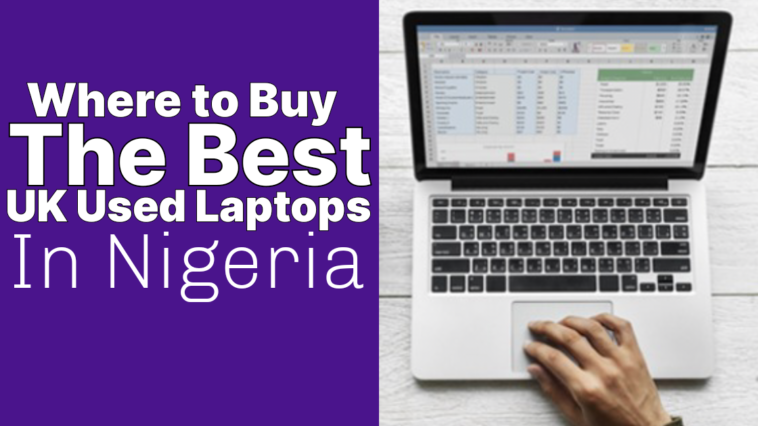If you’re Looking for a Reliable place to buy USA Used or UK Used Laptops in Nigeria then you’re lucky you found this post,
Few months ago i was in your exact position, Looking for a reliable store i can get a UK Used Laptop without any risk, and given the fact that i had already bought two Laptops that had developed Faults months before that, i was even more scared.
However, I managed to bump into a platform online which proved to be very reliable and i have not stopped talking about them ever since, i even made a Video about them which you’ll see later on in this blog post.
Available USA & UK Used Laptops in Nigeria
This Store has large variaties of Laptops available that you can buy from them, And all their Laptops are in Perfect Conditions, You Should Check out their Website with the Link Below
Click here to Check Out the Best USA and UK Used Laptops in Nigeria
When you make up your mind to Buy your Laptop from them, Used this Discount Code CHRISTOPHEREBEH to get a 7-10% Discount on your Purchase with them.
How to Order your USA or UK Used Laptop Online
So, I made a Video about how i made my own Order and Purchased My Laptop from them Online, You Might want to Check it Out before you Proceed, so you don’t make any mistakes during your Purchase.
Additional Tips: Things to Consider Before Buying a Used Laptop
Buying a used laptop can save you a significant amount of money, but it’s also important to be cautious to avoid potential issues.
1. Determine Your Needs
- Identify the primary use of the laptop (e.g., work, gaming, browsing). This will help you choose the right specifications like processor speed, RAM size, and storage type. For instance, a 2-in-1 convertible laptop might suit someone who values flexibility, while a high-performance laptop with discrete graphics is ideal for gaming or heavy workloads.
2. Check the Condition of the Laptop
- Exterior: Inspect the body for any visible damage such as cracks or dents. Check the hinges and ensure the laptop opens and closes smoothly.
- Ports and Connectivity: Test all ports (USB, HDMI, headphone jack) to confirm they work correctly. Plug in accessories to ensure they connect without issues.
- Screen Quality: Turn on the laptop and check the screen for scratches, dead pixels, or backlight issues. Adjust the brightness to ensure it meets your viewing needs.
3. Verify the Hardware and Performance
- Processor and RAM: Aim for recent processors like Intel’s 12th or 13th Gen, or AMD’s Ryzen 6000 series and above. Ensure the laptop has at least 8GB of RAM (16GB is better for performance).
- Storage: Preferably, the laptop should have an SSD (M.2 PCIe NVMe) for faster performance. Check the storage capacity to make sure it meets your needs.
4. Battery Health
- Check the laptop’s battery life by generating a Windows battery report or using third-party software. A weak battery can lead to added costs for replacements, so it’s best to ensure it’s in good condition before buying.
5. Test the Keyboard and Touchpad
- Test all keys on the keyboard, including less frequently used ones, to ensure they function properly. Check if the keyboard backlight works if applicable. Test the touchpad for responsiveness and ensure it doesn’t have sticky points.
6. Inspect Webcam, Speakers, and Connectivity
- Open the camera app to test the webcam. For audio, play some music or a video to ensure the speakers don’t crackle or distort at high volumes. Verify that the Wi-Fi and Ethernet ports are functioning as expected.
7. Review Seller’s Reputation and Warranty Information
- If buying from an individual, check their ratings and reviews if possible. Ask for proof of purchase and any available warranty information. A good reputation and existing warranty can provide peace of mind.
8. Compare Prices with New Laptops
- Compare the price of the used laptop with similar new models. Sometimes the price difference might be minimal, making a new purchase more worthwhile for warranty and long-term use.
9. Software and Operating System
- Ensure the laptop has a genuine and activated copy of the operating system. Check for any installed bloatware and confirm that all necessary drivers are up to date.
10. Negotiate and Final Checks
- Don’t hesitate to negotiate the price based on your findings. If the laptop has minor issues, use that as leverage to get a better deal. Always conduct a final check of all functionalities before finalizing the purchase.

